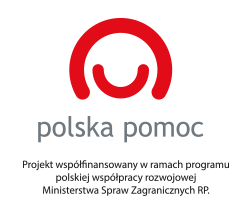Projekt Fundacji HumanDoc – „Media przeciwko ksenofobii” zakłada budowanie pozytywnych narracji i przeciwdziałanie stereotypom wokół trwającego od kilku lat kryzysu imigracyjnego w Europie.
Projekt kładzie nacisk na ukazywanie złożoności zjawisk stojących u źródeł tego kryzysu wykorzystując format reportażu telewizyjnego jako narzędzia edukacyjnego.
Nowy projekt koresponduje z wcześniejszymi działaniami Fundacji HumanDoc w obszarze globalnej edukacji i budowania świadomości społecznej.
Od 2013 roku we współpracy z TV Polsat News 2 i jej dziennikarzami– Janem Mikrutą i Pawłem Naruszewiczem współprodukowaliśmy cykl reportaży prezentujących przykłady globalnych problemów współczesnego świata oraz ich konsekwencji dla codziennego życia ludności wielu regionów naszej planety.
Kwestie poruszane w cyklu “To Był Dzień Na Świecie” to m.in. ocieplenie klimatu, brak czystej wody, nienadążanie powstawania nowych miejsc pracy za przyrostem ludności, zawinione przez człowieka katastrofy ekologiczne, wędrówki ludności z południa na północ wywołane nędzą. We wszystkich reportażach pokazywane są działania podejmowane przez człowieka, których celem jest minimalizowanie zagrożeń. Nie ma jednak pewności, czy ostatecznie przyniosą one znaczący pozytywny skutek.
Pierwszy cykl miał swoją emisję w 2013 roku, drugi w 2015 roku, a trzeci w 2016 roku. Cykl emitowany był raz w tygodniu a jego rozszerzeniem była dyskusja w studio na antenie programu “To Był Dzień Na Świecie” w telewizji Polsat News 2 (PN2), moderowana przez redaktora Grzegorza Dobieckiego. Dodatkowo każdy odcinek cyklu był co najmniej dwukrotnie powtarzany na antenach grupy Polsat: np. Polsat News, Ipla TV oraz umieszczony na stałe w Internecie na stronie polsatnews.pl.
Zaprezentowane reportaże powstały przy współpracy Polsat News z Fundacją HumanDoc w ramach projektu współfinansowanego ze środków programu polska pomoc Ministerstwa Spraw Zagranicznych. Wszystkie reportaże są dostępne także na internetowym kanale Polska Pomoc oraz na internetowym kanale Polsat News.
Reportages
Peru – children of the street
There are children, for whom the word “mum” rings no bells. They have no home, no ID, no perspective for a better life. Instead, there is poverty, violence, uncertainty about tomorrow. Are these children even allowed to dream?
Georgia – Living in a Province
25 years after transformation, the once blooming regions weakened. Some of them lost even half their residents within 20 years. How much does fulfilling one’s dreams cost? And is it worth it?
Cambodia – Textile Industry Workers
Cambodia is one of the largest sewing factories in the world. Check, how much your pair of jeans really costs and how huge the discrepancy between the splendor of the fashion world and the life of a seamstress is.
Lebanon – Syrian Refugees
Why do Lebanese people strive to obtain a Syrian passport and pretend to be immigrants in their own country?
Tanzania – Solar Power Fighting Poverty
This story is a lesson for the Global North on how to use renewable sources of energy, in order to fight off poverty effectively and stop the destruction to the nature.
Malta – Immigrants from Africa
Pharmacists, engineers, educated people flee their homes to protect themselves from regime and starvation. Malta was supposed to be a promise of a better life. Instead, it turned out to be a prison.
Burma – Transformation of Change
After 50 years of military dictatorship, the generals changed their uniforms for suits. The Nobel Prize laureate, Aung San Suu Kyi, who spent 15 year under house arrest, is now a Member of the Parliament. Is that enough to build democracy?
Refugees’ Life in Jordan
Zaatari. The biggest refugee camp in the world. A state within a state. Tents have been exchanged into containers. There is electricity and sewage system. Yet still, many refugees try living outside of the camp, having less than 20 dollars per month. Why is that?
Kenya – Unequal Benefits from Economic Growth
How is that possible that in a country, which is shining among the statistically best developing countries, around 20 million people are out of work? On the other hand, there are serious problems with access to drinking water. Where does all the income go, e.g. from the tourism?
Moldova – Social Consequences of Economic Emigration
A decade ago in Poland, such notions like “euro-orphans” were very popular, as some of children had only one parent – the other one was working abroad. In Moldova, every second child is raised in an incomplete family, as parents work away from home.
Immigrants from Africa
Being just 2 kilometers away from the border with longed-for Europe… What will be the finale of three-year journey for a better life?
Women’s Situation in Georgia
– Georgia owes its survival to women – says the heroine of the documentary. Does Georgia appreciate the power of women today?
Kirgizstan – Access to Drinking Water
If you were a few-kilometer hike through the mountains from a source of clean, drinking water, would you take the challenge, or would you drink tea made from water from contaminated source?
Uganda – Demographic Explosion
– I’m dreaming of building my own house. I will manage, with God’s help and my hard work – says Barbara, one of the characters pictured in the documentary. What will happen with Ugandan people, whose population is growing much faster than development capacities of their country?
Maldives – Consequences of Global Warming
Paradise islands are drowning. Is there still a chance to save the natural treasures? What is going to happen with people, whose houses will go under water? Is building an artificial island a good solution?
Chernobyl – Consequences of the Nuclear Disaster
What is happening in the contaminated zone? Is there something we should fear?
Domestic Violence in Georgia
In 2016 in Georgia, 25 women died because of domestic violence. Finally, the government changed the law, according to which domestic violence is a crime – not just a minor offence, as it used to be in the past.
Donor

Partner
